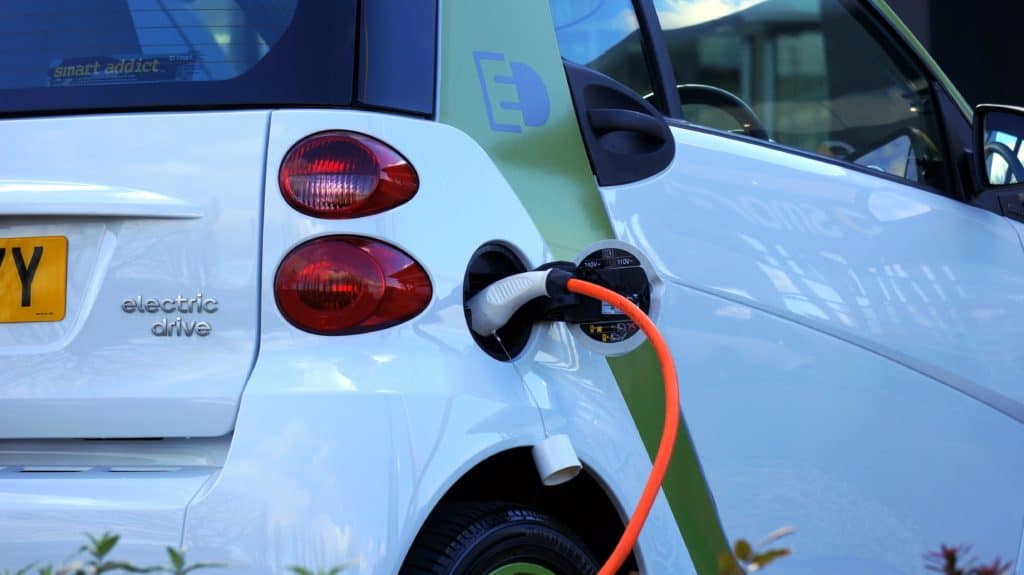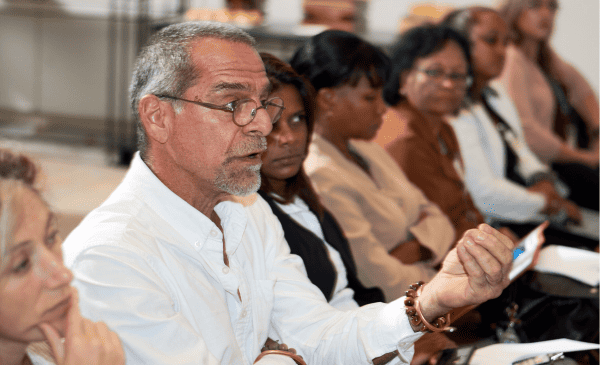Trinidad and Tobago (T&T), the southernmost Caribbean island nation, has been dependent on its fossil fuel industry throughout the 20th century. This industry propelled the economic development of the country to highs, making it one of the richest countries in the region. However, it also predisposes the twin-island nation to a number of ills.
Fossil fuel extraction and processing make up 45% of the country’s Gross Domestic Product (GDP) and comprise much of the exports through products like ammonia and liquefied natural gas which contribute 85% of total export earnings and 40% of government revenue, while the national electric grid is powered almost entirely by natural gas.

At the launch of Re-Energise T&T in November 2022, Minister of Energy and Energy Affairs Stuart Young reinforced the Ministry’s position on oil and gas, saying the country will continue to produce natural gas responsibly and cleanly.
T&T has shot to worldwide recognition for being able to exploit a resource many other small island states (SIDS) do not possess. The country boasts a relatively high per capita income, low unemployment and poverty rate, free education, generous pensions, and high social investment, a state of prosperity mostly due to the abundance of oil and gas.
This intertwined dependence on oil and gas is best summarised by Bridget Brereton in 1982, stating that “the story of the twentieth century Trinidad economy would be, in large measure, the story of oil.”
However, this dependence has led to several negative repercussions.

Emission reduction commitments on shaky ground
Under the Paris Agreement, member states must commit to reducing Greenhouse Gas (GHGs) emissions so as to meet the goals of the Agreement, mainly to limit global warming to well below 2 degrees Celsius, preferably to 1.5, compared to pre-industrial levels. The link between the emission of GHGs and climate change has been described repeatedly, with impacts on sea-level rise, temperature rise, extreme weather as well as changes in seasonality.
T&T committed to a 15% reduction of emissions by 2030 in its 2017 Nationally Determined Contributions (NDCs), though the transition has been shaky. For example, the budget statement for 2021 to 2022 included a measure to “remove all custom duties, motor vehicle tax and value-added tax on the importation of battery-powered electric vehicles,” a measure that does not take into account the high initial cost of purchase, the lack of public charging stations, and the fact that the cars would be charged using electricity from natural gas.

Energy transition capacity
The oil and gas industry has certainly received condemnation for its role in environmental pollution. Between 2015 and 2018, nearly 400 oil spills were recorded by the T&T Environmental Management Authority.
Oil spills are critically dangerous to humans, wildlife, and the environment. Inhalation of hydrocarbon vapours and absorption of chemical compounds can risk human health, while tourism and marine occupations like fishing may lose revenue. Wildlife health is affected by vapours, absorption of chemicals, and the risk of physical smothering. Larger ecosystem services can be overwhelmed when the habitat is unsuitable for animal health, or when a species with a key role is devastated by a spill.

But is T&T in a position to reduce its dependence on fossil fuels, amidst a global push to transition to renewable energy sources?
Cari-Bois spoke to local environmentalist Gary Aboud, of Fishermen and Friends of the Sea, who firmly disagrees that T&T has the capacity to phase down or phase out fossil fuels at the moment.
“That’s not an option. (Trinidad and Tobago) is a country that has mismanaged its wealth and we have a critically dangerous imbalance of trade. We’re suffering from potential devaluation, there’s poverty, there’s malnutrition; it’s not an option.”
Aboud cited the “resource curse” as part of the problem, a term which, according to the Natural Resource Governance Institute, refers to “the failure of many resource-rich countries to benefit fully from their natural resource wealth, and for governments in these countries to respond effectively to public welfare needs”. Overcoming the resource curse requires careful long-term fiscal policy measures inside a larger framework that emphasise sustainability, the country’s unique characteristics, and flexibility.
Phasing out of fossil fuels is, according to Aboud, an opinion of the most privileged, wealthy, well-fed nations, as less economically developed countries cannot afford to turn their back on people with a lower socioeconomic status, and extractive wealth is a critical component of the opportunity to get out, but the opportunity fails because no one manages the wealth.
For a country whose income can fluctuate drastically based on the global price of oil, Aboud’s warning rings true. T&T currently has a debt-to-GDP ratio of 61% and the extractive riches are at odds with the constant public lamentation of the state of infrastructure; roadways are pockmarked with potholes and drainage systems succumb to flooding relatively quickly, as recently demonstrated in the November 2022 floods.

Determination to transition
Economies that are excessively dependent on mineral resources tend to have slower long-term growth, with productivity undermined by exposure to commodity prices, rent-seeking opportunities, and a loss of competitiveness due to an overvalued exchange rate, and ultimately run the risk of resource depletion. According to a report released by the InterAmerican Development Bank, T&T’s reliance on oil and gas production makes it vulnerable to the global energy market fluctuation, a phenomenon witnessed in April 2020 when Brent crude oil dropped to negative prices. This has related impacts, such as subdued growth in other economic sectors.
Nevertheless, T&T is forging ahead in its mission to achieve the NDC that was first drafted in 2017, despite challenges. Environmental consultant Ryan Assiu points out that it focuses on our top 3 emitting sectors which together contribute to 90% of our total annual emissions according to our national inventories collected over the period 2006 – 2018 as reflected in the 2021 Biennial Update Report to the United Nations Framework Convention on Climate Change (UNFCCC).

The construction of a 112-MW solar photovoltaic plant will begin construction in early 2023. The ambitious project has been dubbed Project Lara and will be situated in Brechin Castle and Orange Grove.
T&T is now pursuing a Just Transition to safeguard workers’ rights during the transition to a low-carbon economy. In the draft policy, green hydrogen was identified as a pathway to produce clean energy for the local ammonia production facility. The country currently produces “grey” hydrogen which is produced from natural gas which powers an electrolyser to break water into hydrogen and oxygen, whereas “green” hydrogen is created using an electrolyser powered by solar or wind energy.
In a global economy defined by fossil fuel exploitation, T&T is striving to overcome its dependence on fossil fuels. The island nation needs to persist in the development of a strong foundation of renewable energy and integrate energy efficiency into each step of its economic future.
This story was published with the support of Climate Tracker and The Cropper Foundation’s Caribbean Citizen Journalism Fellowship.





